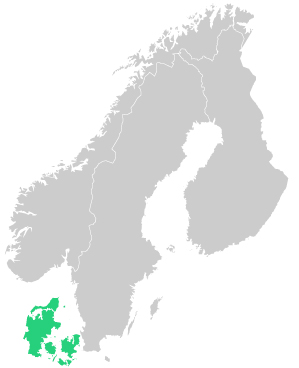Denmark's new Holiday Act came into force on 1 September 2020. You can find a wealth of guides and detailed information about the new Act on Azets' blog and in numerous other places on the Internet, which attempt to clarify what you should pay special attention to as an employee or employer. However, if you need a quick overview of answers to the key questions, it can be easy to get lost in the many well-intentioned blog posts, guides and information pages.
This article is therefore aimed at those who do not have time to read the long guides and information articles, but just need an overview of the most essential information about the new Holiday Act.
Why did we need a new Holiday Act?
In short, we needed it because in 2014, the European Commission deemed the Danish rules on annual leave to be in violation of the EU Working Time Directive.
What are the main changes?
Everyone is entitled to paid leave – straight away
Under the previous Holiday Act, employees should have been employed for a year before they earned any paid leave. If you came into employment from a period spent as a student, or from long-term unemployment or illness, you would be particularly affected by these rules, as it might took up to 16 months from earning the leave to being able to use it.
With the new Holiday Act, you are entitled to paid leave immediately, whether you are a recent graduate, have been long-term unemployed, etc.
Concurrent leave and an extended period for taking leave
For the past 80 years, we have been accustomed to leave earned between 1 January and 31 December being taken from 1 May to 31 April the following year.
Now, however, you will be able take leave the month after you have earned it. You will earn 2.08 days of leave every month, so days earned in January can be taken in February.
Hence the term "Concurrent leave", which means that you have the option to take leave (almost) as you earn it. Of course, all leave must still be approved by the employer – the new Holiday Act does not change that.
The holiday year and taking leave
Under the new Holiday Act, the holiday year runs from 1 September to 31 August. However, the period for taking leave has been extended by four months and is thus 16 months in total. This means that the leave you earn from 1 September 2020 to 31 August 2021 may be taken up to and including 31 December 2021. Of course, this is still subject to approval from your employer. If the employer announces that holiday should be taken during e.g. the summer period, it is not certain that the period for taking leave will be as long as the full 16 months.
Freezing of holiday pay
As part of the transition to the new Holiday Act, it has been decided that the holiday pay earned during the period 1 September 2019 to 31 August 2020 will be frozen in The Employees' Fund for Residual Holiday Funds. The funds will be paid out when you leave the labour market.
The reason for this solution is that there has been an overlap between the previous and the new Holiday Act. The consequence of this overlap is that without the freezing of funds, employees would have to be paid twice as much holiday pay or take up to 10 weeks of leave during one year. This would simply be too great a burden on both the economy and employers' liquidity.
HOWEVER, you will not lose the right to your frozen holiday pay and it will not be worth any less. The frozen holiday pay will be indexed according to the annual real wage developments, cf. DA's structure statistics.
UPDATE: Due to the COVID-19 crisis, the Danish government has decided to payout three of the five frozen weeks to motivate spending. It is the government, and not the employers, that is financing this early payout. The companies are still able to keep the funds untill the employees leave the the labour market.
What about the autumn holiday in 2020?
If you wish to take a one-week holiday in October 2020, you will not have enough days of leave available. This is because the new Holiday Act – and thus concurrent leave – will come into force at this time. You will only earn 2.08 days in September, so you will be 2.92 days short. That means you need to agree with your employer that you can either take the extra days in advance, or have them transferred from the previous holiday year, which ended on 30 April 2020. Alternatively, you may supplement with some extra leave, if the option is available to you.
What about extra leave?
The rules for extra leave (feriefridage) do not follow the current nor the new Holiday Act. Instead, the rules for extra leave are governed by the collective agreement, local agreement, employee policy or the employment contract.
In connection with the new Holiday Act, many employers will choose to adjust the date of payment for extra leave, so that this follows the new holiday year and the extra leave days are earned from 1 September. This means that the employer must make a decision about earning and taking extra leave during the mini holiday year, which runs from May to August 2020.
Important information for employers
New legislation always leads to new tasks and workflows, and the new Holiday Act is certainly no exception. As an employer, you must among other things:
- Update employment contracts and employee policies
- Create holiday records for each employee on a monthly basis
- Adjust payroll and HR systems to ensure that employees' holidays are in order
- Report to the newly created fund how much frozen holiday pay employees have
- Settle frozen holiday pay when an employee leaves the labour market
Read also: Holiday Act – four tasks for employers
Need help?
If, as an employer, you need advice in relation to the new Holiday Act, feel free to contact us. For example, we can assist you in updating your employment contracts and employee policy. We can also provide training in the new Holiday Act – either physically or virtually, or send the necessary presentations and materials so that your employees are well equipped. We offer the information material in both Danish and English.

